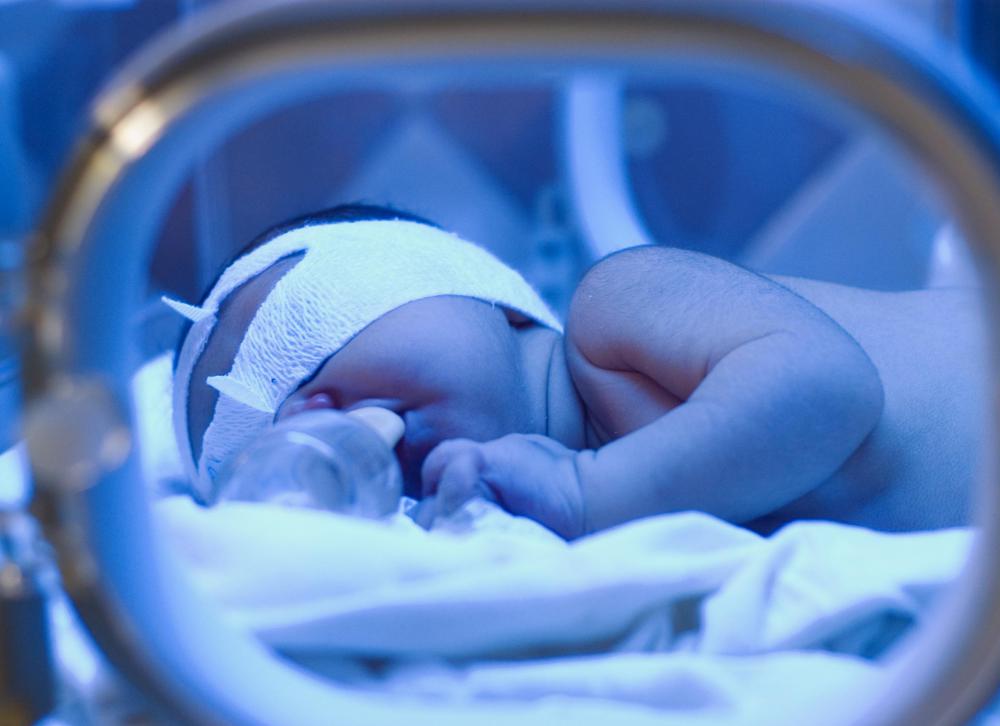At WiseGEEK, we're committed to delivering accurate, trustworthy information. Our expert-authored content is rigorously fact-checked and sourced from credible authorities. Discover how we uphold the highest standards in providing you with reliable knowledge.
What Is Premature Childbirth?
Premature childbirth, also known as preterm childbirth, is when the baby is born before the 37th week of pregnancy. There can be problems associated with preterm babies, such as underdeveloped organs, breathing problems and brain hemorrhage. The more mature the baby at birth, the better the prognosis, with babies born before the 34th week being particularly vulnerable.
There are many factors that are thought to be involved in premature childbirth, though the precise reason is often unknown. Genital tract infections, problems with the placenta, and structural abnormalities of the uterus or cervix are some of the reasons for premature childbirth. A history of preterm labor increases the risk, as does being pregnant with more than one baby, not gaining sufficient weight, suffering from anemia during pregnancy, smoking or drinking alcohol, and being pregnant as a result of fertility treatments.

The symptoms of preterm labor include an increase in vaginal discharge, a change in the type of discharge, abdominal or lower back pain, and having more than four contractions in an hour. Some of the symptoms that should never be ignored include severe and persistent abdominal pain; vaginal bleeding; painful urination or no urination at all; vomiting and fever; severe headaches especially if accompanied by numbness; slurred speech; shortness of breath; and dizziness.

Should premature childbirth be imminent, there are a number of factors that influence what happens next. If at all possible, labor will be delayed. This can be achieved by giving the mother medication to stop the contractions and the baby corticosteroids in an attempt to hasten the development of his lungs. The lungs are one of the last organs to develop in the womb, which is why a premature baby is particularly vulnerable to breathing difficulties. Should there be other complications such as preeclampsia or placental abruption, it may be considered best that the birth takes place immediately.

Problems that affect premature babies include respiratory distress syndrome, jaundice, hypothermia, feeding difficulties and brain development. They are also six times more likely than full term babies to die within their first week. For this reason, most premature babies spend their first days or weeks in the neonatal intensive care units. Later on in life, there is a greater risk of developing health conditions such as mental retardation, cerebral palsy, gastrointestinal problems, and loss of hearing and vision. The news is not all bad, however, as there are also many cases of premature babies surviving and living healthy lives.
AS FEATURED ON:
AS FEATURED ON:














Discuss this Article
Post your comments